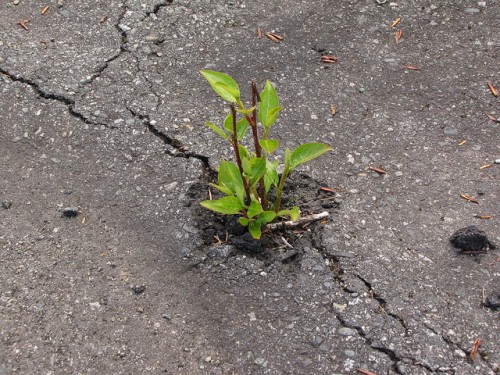Some research studies have shown that there are people who are resilient by nature – they have the ability to adapt to stress and adversity with ease. Yet, what is very important to note is that resilience is not a rare ability – all of us have it but we have not spent enough time and effort in developing it. However deficient we may be in resilience, what should be noted is that it can be learned, developed and nurtured.
Stress and adversity comes in many shapes and sizes – one could have family or relationship problems; one could have health issues; one could have problems at the workplace and in business; one could have financial difficulties. Some people face these problems and difficulties with greater ease than others. But if, for some reason, you feel that you are not resilient enough, that you just cannot handle stress and adversity well, then you are not doing yourself justice. Resilience can be developed and I hope that the tips that I have outlined below will help!
1. “I believe in my strengths and abilities.” Yes, studies have shown the importance of self-esteem; self-esteem helps us cope with stress and tackle events that seem too tough for us to handle. On a daily basis, remind yourself of your accomplishments and strengths, of how you have dealt with crisis in the past, of what a gifted person you are. Positive reinforcement will go a long way in building your resilience levels.
2. You must try and find a sense of purpose in your life. Never have a defeatist attitude. There have been cases where “survivors” of abuse and rape have opened their own helpline numbers, not to create awareness about their plight but to educate a larger audience on why society should scorn the rapist and the not the raped. You have to promise yourself to fight for what is right and bring about a positive change, even if you have to stand and fight the battle alone. It is by doing this that you will find a sense of purpose that will help you recover from what you have had to go through. Get involved with the community; cultivate your inner self of being, participate in activities that bring meaning to your life and get a more positive sense of yourself and your existence.
3. Networking helps, it brings in caring and supportive, like-minded folks together. These are people who can speak to your soul, people that you have no hesitation in confiding in. When you talk about something that is bothering you to someone you trust or love, it may not make the issues go away but can help unburden a lot that is bothering you. You gain support and receive feedback and that can lead to the discovery of solutions that you never thought existed.
4. To be resilient you need to be flexible. When you learn to adapt, you learn how to respond to life changing situations, good and bad. Study people that you consider resilient and see how they use each opportunity as a stepping stone to do something better. Some are crushed at the beginning, but they find the resolve to get going once again. Read about people who have bounced back from seemingly unsurmountable situations. Read, for example, about Ernest Shackleton and how he and his team survived for nearly two years in the cold and desolate Antarctica. There are hundreds of inspiring stories about people who have not allowed the direst of situations to get the better of them.
5. Be optimistic about yourself. Maintain an outlook of hope and this will make you strong and resilient. I am not asking you to ignore your problems, that isn’t the way to be resilient at all. For positive outcomes, you need to be focussed and that means dealing with setbacks in a determined and single-minded fashion. Setbacks should be looked as transit bridges that help you move on to the next level, leaving behind what was not meant to be.
6. Nurture yourself, especially when you are over stressed. Neglecting your personal needs and desires, not eating well, not exercising and not sleeping well can be really harmful and worsen the situation. Don’t let this happen to you; take care of your needs even when there is trouble around. You need to take time out for yourself and to do things that you find enjoyable. When you care for your own needs, your psychological and physical health will be in peak form and you fill find your resilience levels rising.
7. Don’t just focus on the problem, look for solutions as well. When new challenges confront you, draw a list of them and find ways to potentially solve them. Focus on various strategies even if some of them seem outlandish. When you learn how to practice problem solving skills, and that too on a daily basis, challenges stand no chance in front of you. You would also learn how to best cope with untoward situations without sweat.
8. Define your goals. Have you defined the goals you want to achieve? There are huge advantages of defining your goals – both long term and short term. Actually writing down your goals and following them diligently and within the time frame that you have defined will ensure that you keep crisis situations at bay. Make a daily to-do list. Eat that frog first – that is, tackle the most difficult or painful task first; the rest of the day would be a cakewalk.
9. Finally, don’t expect resilience to be SPINACH a la POPEYES magical ingredient. Resilience takes time to build. Work on it even at the worst of times. As you start tackling your problems and challenges one by one, you will find that you are becoming more resolute and tough. A time will come when you will confront your challenges with a determined smile on your face.
How resilient a person is varies from one to the next. But if you follow some of the points that I have outlined above and don’t allow adversity to get you downhearted and depressed, you will find that there is no challenge that you cannot confront with a positive frame of mind.
Visual Courtesy: https://www.flickr.com/photos/gerrythomasen







